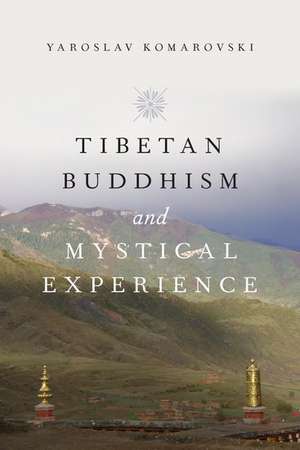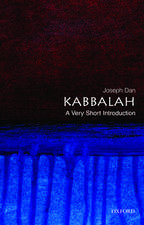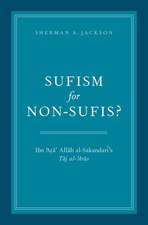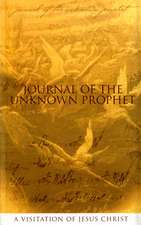Tibetan Buddhism and Mystical Experience
Autor Yaroslav Komarovskien Limba Engleză Paperback – 16 iul 2015
| Toate formatele și edițiile | Preț | Express |
|---|---|---|
| Paperback (1) | 322.78 lei 32-37 zile | |
| Oxford University Press – 16 iul 2015 | 322.78 lei 32-37 zile | |
| Hardback (1) | 744.79 lei 32-37 zile | |
| Oxford University Press – 16 iul 2015 | 744.79 lei 32-37 zile |
Preț: 322.78 lei
Nou
Puncte Express: 484
Preț estimativ în valută:
61.77€ • 64.07$ • 51.50£
61.77€ • 64.07$ • 51.50£
Carte tipărită la comandă
Livrare economică 17-22 martie
Preluare comenzi: 021 569.72.76
Specificații
ISBN-13: 9780190244903
ISBN-10: 0190244909
Pagini: 304
Dimensiuni: 208 x 137 x 23 mm
Greutate: 0.24 kg
Editura: Oxford University Press
Colecția OUP USA
Locul publicării:New York, United States
ISBN-10: 0190244909
Pagini: 304
Dimensiuni: 208 x 137 x 23 mm
Greutate: 0.24 kg
Editura: Oxford University Press
Colecția OUP USA
Locul publicării:New York, United States
Recenzii
Riveting, informed and adventurous, Yaroslav Komarovski's reflections on mystical practice and polemic in Tibet makes a distinctive and important contribution to the study of Tibetan mysticism as well as mysticism across cultures. Drawing on contemplative and philosophical texts, he brings classical Tibetan voices right into contemporary Western debates on mysticism, especially regarding the possibility of unmediated experience. Never reductive, always rigorous and dynamically engaged, this book offers genuinely new insights for Buddhists, Buddhist scholars, and researchers on the cross-cultural dynamics within and between religious-mystical trajectories.
It is hard to write about mystical experience. One must talk about the ineffable and confront a complex debate regarding the possibility of doing so. It is also hard to write about Tibetan literature on non-conceptual experience and direct realization. It requires sophisticated philological skills and mastery of a difficult literature. Komarovski succeeds admirably in these tasks, explaining Tibetan debates regarding unmediated experience with great clarity, in conversation with contemporary theory.
It is hard to write about mystical experience. One must talk about the ineffable and confront a complex debate regarding the possibility of doing so. It is also hard to write about Tibetan literature on non-conceptual experience and direct realization. It requires sophisticated philological skills and mastery of a difficult literature. Komarovski succeeds admirably in these tasks, explaining Tibetan debates regarding unmediated experience with great clarity, in conversation with contemporary theory.
Notă biografică
Yaroslav Komarovski is Associate Professor of Religious Studies at the University of Nebraska-Lincoln.
















